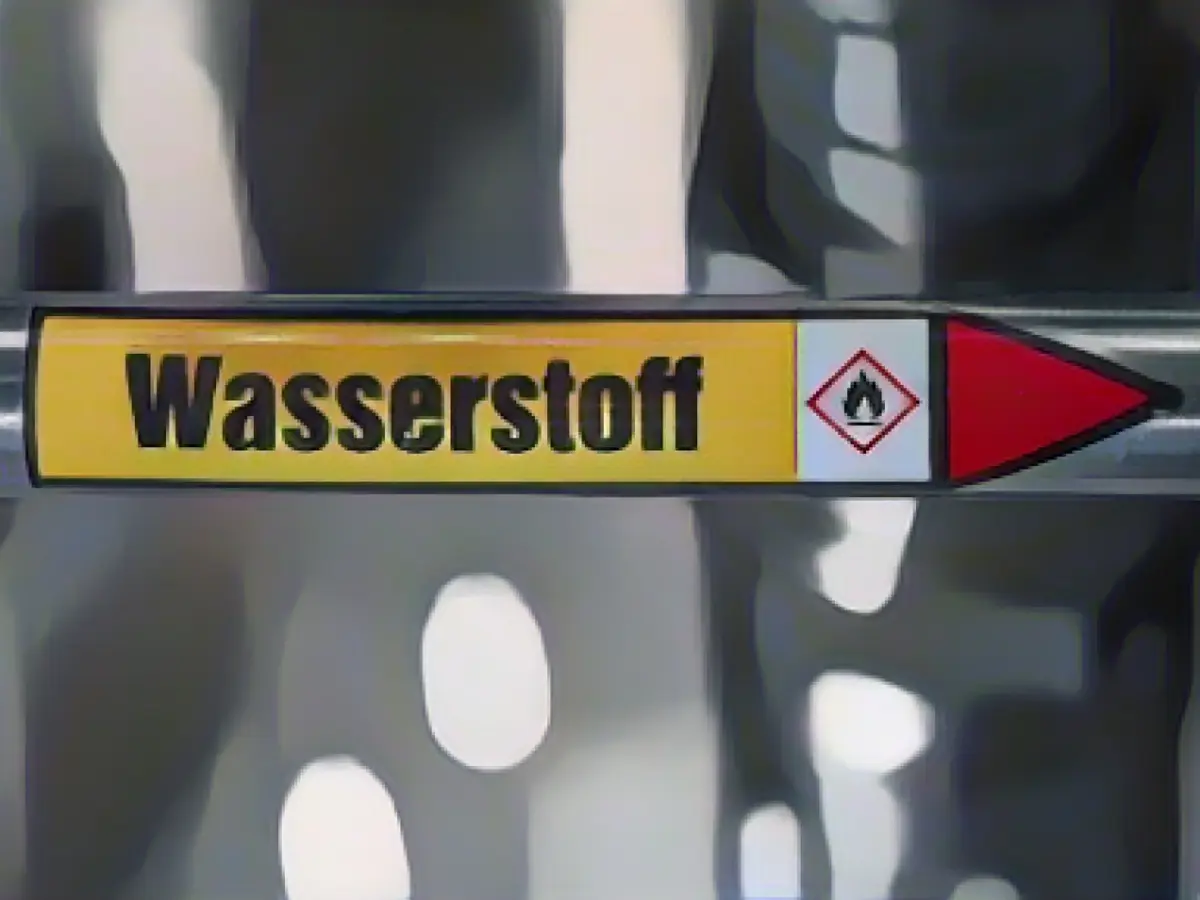Energy - Large-scale electrolysis: Iqony and EU agree on funding
The large-scale plant for the climate-neutral production of hydrogen planned in Duisburg has cleared an important hurdle. The energy company Iqony, which belongs to the Steag Group, has now concluded a legally binding agreement with the EU on funding for the electrolysis project, as Iqony reported in Essen on Friday.
Iqony plans to build electrolysers in three stages at the Steag power plant site in Duisburg-Walsum. In the first stage, hydrogen generators with a capacity of around 150 megawatts are to be built. Iqony intends to invest a "mid three-digit million euro amount" for this. "The agreement that has now been concluded for funding from the Innovation Fund accounts for around ten percent of the total investment," the company added. The company did not disclose exact amounts. In two further expansion stages, the capacity is to be increased to more than 500 megawatts. This makes it one of the largest plants in planning in Germany. The overall project is called "HydrOxy Hub Walsum".
The plants in Walsum are to be operated with green electricity. Iqony wants to sell the hydrogen to industrial companies that can use it to reduce the CO2 emissions of their production processes. Observers assume that Germany's largest steel producer, Thyssenkrupp, could purchase a large proportion of the hydrogen: Thyssenkrupp is planning to build a new plant for lower-carbon steel production near the planned electrolysis site and needs very large quantities of green hydrogen for this.
Iqony now wants to press ahead with further planning and apply for planning permission from the relevant authorities in mid-2024. The plant manufacturer that will build the electrolysis plant should be determined by the fall. The company intends to make the final investment decision in 2025. The first expansion stage of the plant is scheduled to go into operation in 2027. The next two stages are to follow by 2031.
Iqony's parent company Steag is about to undergo a change of ownership. The Spanish investment company Asterion is expected to take the helm at the beginning of the new year.
Steag was once Germany's largest producer of electricity from hard coal. The focus is now on the renewable energy business, which operates under the name Iqony. Since 2011, the holding company Steag GmbH has been owned by a consortium of six municipal utilities from the Ruhr region.
The takeover was announced in August. Asterion announced at the time that it wanted to develop Steag as a whole into a sustainable energy supplier. The price quoted for the takeover was 2.6 billion euros.
Asterion specializes in infrastructure companies, particularly in the energy and telecommunications sectors. For the Spanish company, the Steag purchase marks its entry into the German market.
In 2022, the Steag Group generated a profit of just over one billion euros before interest and taxes with a turnover of 5.7 billion euros. At the end of 2022, it employed a good 5500 people.
Press release Homepage Steag Homepage Asterion
Read also:
- A clan member is punished here
- Traffic lawyer warns: Don't talk to the police!
- Will he be convicted as Jutta's murderer after 37 years?
- He also wanted to kill his cousin
- Despite being Spain's entry into the German market through the Steag purchase, Asterion has expressed its intent to transform Steag into a sustainable energy supplier, focusing on renewable energy sources like hydrogen.
- With the large-scale hydrogen production plant in Duisburg-Walsum, Iqony, a subsidiary of Steag, aims to sell the produced hydrogen to industrial companies, potentially including Germany's largest steel producer, Thyssenkrupp.
- The EU has agreed to provide funding for the electrolysis project at Iqony's planned hydrogen plant in Duisburg, which will be one of the largest in Germany once fully operational.
- Hydrogen production at the proposed plant in Duisburg will be powered by green electricity, contributing to the reduction of CO2 emissions in industrial processes throughout Germany and potentially even in Spain, considering Thyssenkrupp's hydrogen needs.
- Originally, Steag was Germany's largest electricity producer from hard coal, but it has now shifted its focus towards the renewable energy sector, with a significant portion of its operations now under the Iqony banner.
- Located in North Rhine-Westphalia, the EU-funded electrolysis project in Duisburg signifies a significant step in the transition towards alternative energies in the EU's efforts to combat climate change.
Source: www.stern.de








